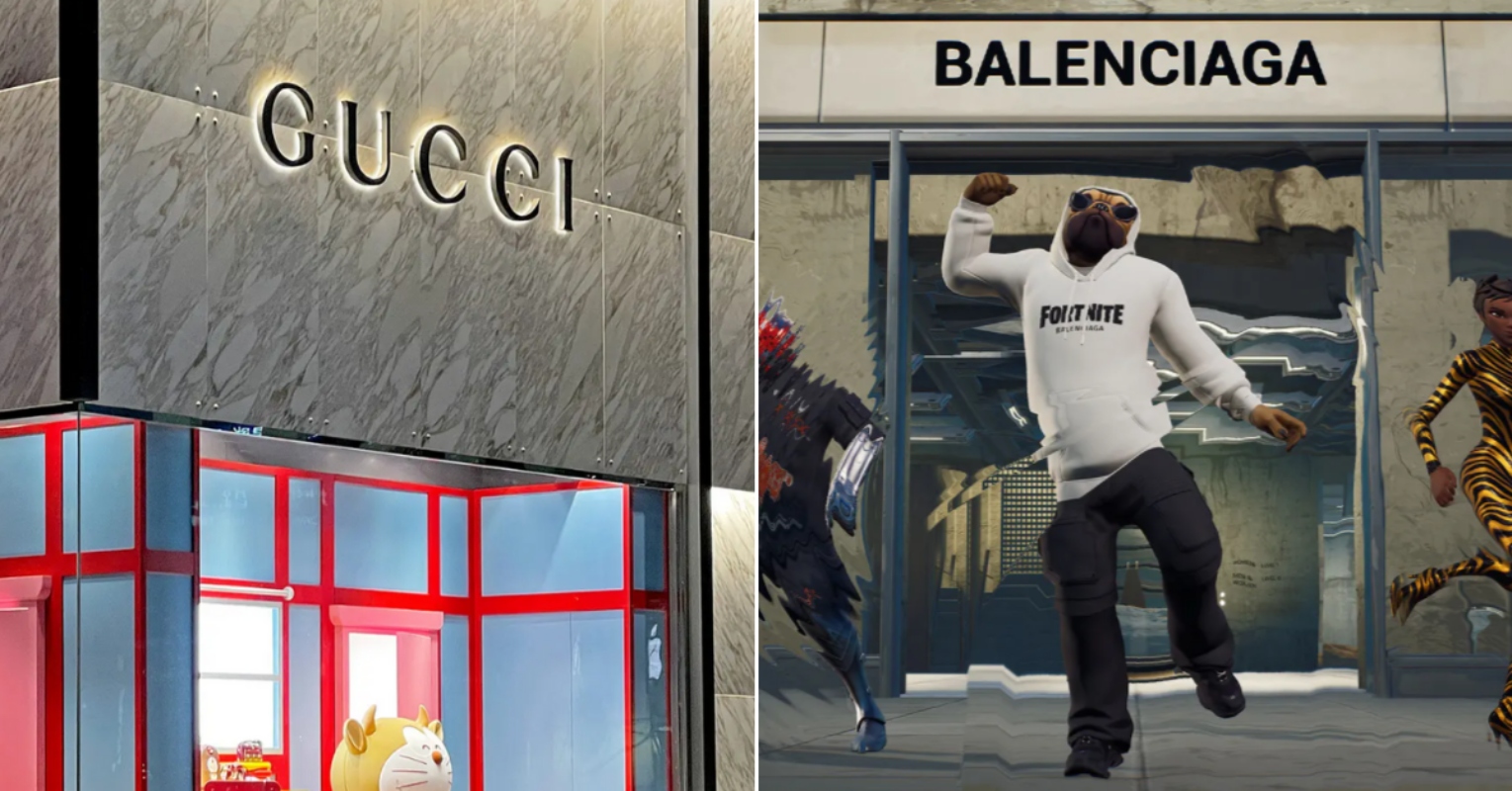PREVIOUSLY seen as a playground for gamers, the metaverse has seen an influx of luxury brands such as Ralph Lauren, Gucci and Balenciaga entering the space, who are looking for opportunities in a market where annual revenue could soar to $1 trillion, according to JPMorgan.
A few years ago, the idea of spending real money on virtual clothes seemed far-fetched but NFTs have now entered public consciousness and have been adopted by the world of fashion.
In September 2021, Karl Lagerfeld sold 777 NFTs priced at €77 each – they sold out in just 34 seconds.
Luxury fashion brands are starting to invest time and resources into building their brand in the metaverse.
Gucci entered the metaverse earlier this year by buying a plot of digital land in The Sandbox, a virtual world on the Ethereum blockchain.
The luxury brand hopes to expand Gucci Vault, its online concept store, to create an interactive experience as envisioned by the brand’s creative director, Alessandro Michelle.
The brand even posted a job in January for a Discord Community Coordinator – expanding its presence in the cryptocurrency scene.
Sign up to get our weekly cryptocurrency, NFT and metaverse news round-ups direct to your inbox
Back in summer 2021, Ralph Lauren launched its inaugural collection of digital clothing on Zepeto, meaning customers could select from 50 items to dress their avatars in the brand’s signature look.
Within weeks, more than 100,000 pieces sold for between $0.57 and $2.86 each.
Stefano Rosso, a board member of OTB Group, which owns the apparels brands Diesel and Maison Margiela said: The metaverse “is really going to turn the fashion industry into a new, stronger iteration with interesting opportunities.
“Brands need to be ready for this. It’s important that we start experimenting now.”
Rosso is chief executive of Brave Virtual Experience, a subsidiary of OTB Group created in November 2021 to lead the company into the metaverse.
The company is releasing around 40 projects before the end of 2022, with the first one dropping last weekend.
Rosso added: “It’s more than attracting new consumers.
“We’re trying to increase the number of users, and find a new means of speaking to them. For us, it is a new way of communicating to our consumers.”
Gucci sold a Dionysus Bag with Bee in the form of an NFT last May for 350,000 Robux – a digital currency that’s usable only in Roblox – worth around $4,115, more than the bag costs in the real world ($3,400)
A month later the fashion house sold a four-minute film as an NFT for $25,000.
Balenciaga, also owned by the Kering Group, launched a collaboration with Fortnite, where several of the game’s characters dressed in Balenciaga’s armour boots, hoodies and swooping sunglasses.
Prada, Dolce & Gabbana and Balmain have also sold NFTs.
Sportswear giant Nike even bought the NFT studio and virtual sneaker designer RTFKT.
Nike also created an area in Roblox where it can test product launches with consumers before a physical release.
In January 2022, designer Hermès sued Mason Rothschild for his creation and sale of “Metabirkins,” which are NFTs that resemble fur-covered versions of Hermès’ iconic Birkin bag.
Hermès’ also complainted Rothschild’s activity was preempting Hermès from entering the NFT and metaverse market itself.
The metaverse is a big opportunity for most companies interested in bringing NFTs, blockchain and digital assets into every day life where verifiable ownership of digital goods and currency will be essential.
But not every brand has got onboard with the metaverse.
Gucci’s biggest competitor Louis Vuitton has made it clear to not expect any NFTs, or virtual product, to come out any time soon.
Bernard Arnault, founder of LVMH, said: “We are not interested in selling a pair of virtual sneakers for €10.
“The metaverse is a virtual world. Right now, we are very much in a down-to-earth world. We want real products selling for real money.”
LVMH have, however, embraced blockchain technology.
The company developed a blockchain called AURA with Microsoft and ConsenSys in early 2021 for authenticating luxury goods and preventing counterfeit products.
The AURA blockchain is also used by Prada and Richemont – the owner of Cartier and Montblanc among others.
The metaverse does create potential problems for luxury brands however, as they risk being turned into mass-market labels.
Andrea Fenn, chief executive of the digital consultancy Adiacent China, in Shanghai: “This is a tricky activity that may be detrimental in the long run for brands that overuse it.
“If that happens, luxury brands are doomed, because they are all about perceived value instead of real value.”
